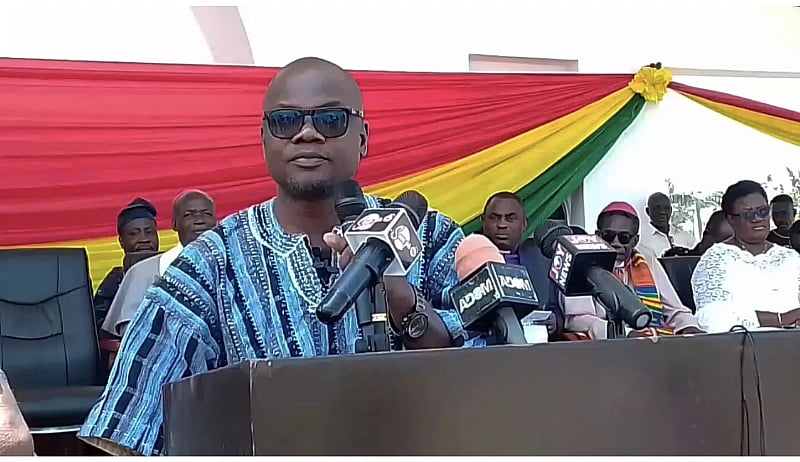The Central Regional Minister, Hon. Ekow Panyin Eduamoah Okyere, has issued a clarion call to the Christian clergy in Ghana to take a firm moral stance against illegal mining, popularly known as galamsey, by extending their influence beyond the pulpit into the heart of national ethical struggles.
Speaking at the Central Region’s commemoration of the National Day of Prayer and Thanksgiving in Cape Coast, held under the theme “Reflect, Reset, and Renew for National Prosperity”, the Minister urged churches to confront the creeping influence of ill-gotten wealth in their congregations.
According to Hon. Eduamoah Okyere, pastors must stop accepting questionable donations from individuals involved in illegal mining, which he referred to as “filth money.” He challenged the clergy to evaluate offerings critically and reject those that are clearly inconsistent with the giver’s known income.
“If I’m a minister and I give an offering beyond what I earn, you should be bold to reject it,” he declared.
The Minister further called on churches to bar individuals involved in illegal mining from holding leadership positions within their congregations. He warned that honoring such individuals sends a dangerous message to society—that wealth, regardless of its source, commands respect and authority.
Granting leadership roles to known galamsey operators, he said, not only tarnishes the moral authority of the church but also inspires others to pursue similar illegitimate paths to status and power.
He emphasized the severe environmental degradation and national security threats posed by illegal mining, urging churches to cut all financial and social ties with those perpetuating the practice.
Also addressing the gathering was Rev. Dr. Bismark Moore, Central Regional Chairman of the Ghana Pentecostal and Charismatic Council and Regional Superintendent of the Assemblies of God-Ghana. He echoed the Minister’s sentiments, stressing the need for a moral and spiritual revival rooted in truth and responsible leadership.
Rev. Dr. Moore called for a governance framework built on transparency and stewardship, rather than self-interest, and advocated for an inclusive economic transformation.
He emphasized that development must not be confined to major urban centers like Accra and Kumasi but spread across the country to ensure that all citizens can access decent livelihoods without resorting to illegal or harmful activities.


